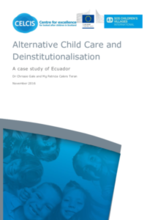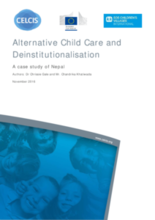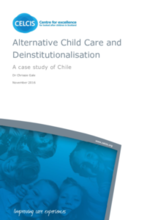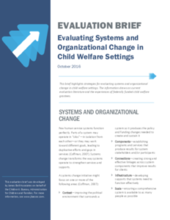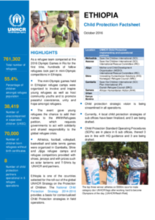Displaying 471 - 480 of 946
This paper draws on the literature and practice examples from around the world to examine the fundamental challenges experienced by States in their efforts to implement the 'suitability principle,' as described in the Guidelines for the Alternative Care for Children.
The European Commission Directorate-General for International Cooperation and Development (DG DEVCO) commissioned SOS Children’s Villages International to undertake case studies of arrangements for ‘alternative child care’ in six non-European countries across three continents to help inform the EU’s future strategy for provision of support for children in countries outside Europe. This report is a case study of one of the six countries, Ecuador.
The overall purpose of this study is to present an ‘introduction’ to alternative care systems in Central and South America (CSA).
The report investigates why children are placed into alternative care, what types of alternative care are available in Nepal, what structures and processes govern alternative care, how the alternative care workforce are trained and supported, and what is and is not working in Nepal's current system. It concludes with recommendations for enhancing alternative care in the country.
The European Commission Directorate-General for Justice and Consumers commissioned SOS Children’s Villages International to undertake case studies of arrangements for ‘alternative child care’ in six non-European countries in three continents to help inform the EU’s future strategy for provision of support for children in countries outside Europe. This report is a case study of one of the six countries, Chile.
This paper is an attempt at rethinking the systemic problems facing the funding and commissioning of care services and placements for children in need of care and adoption, across ALL types and specialisms of placement, from kinship care, through foster care, to residential care and adoption.
In this video from United Aid for Azerbaijan, several experts and public officials discuss the importance of deinstitutionalization.
This brief explores challenges and strategies for evaluating systems and organizational change in US child welfare settings.
The current study makes analyses of the national strategy for deinstitutionalization of children and concludes on important recommendations concerning national policy development.
In this Ethiopia Child Protection Fact Sheet, UNHCR provides the main child protection highlights, issues, and trends for 2014 to 2016.

